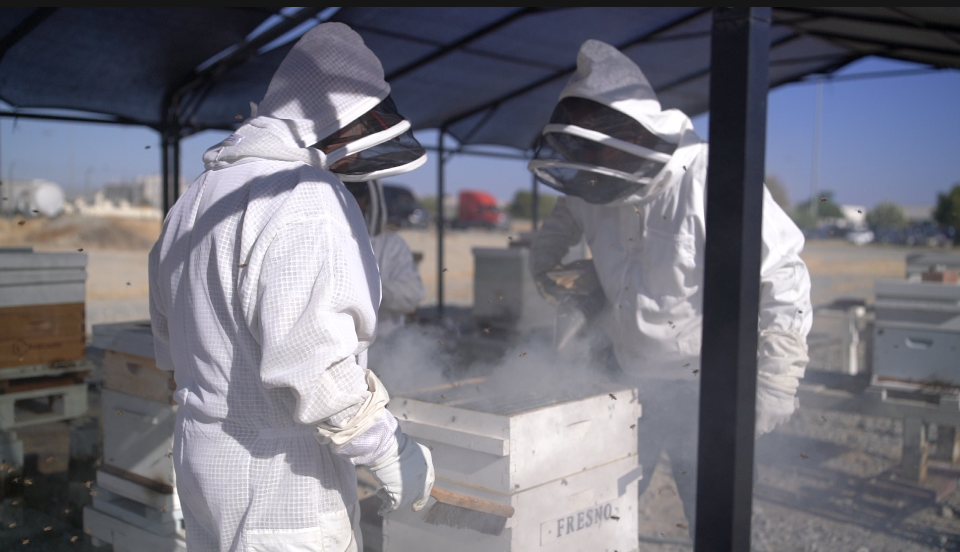DELANO, Calif. (KERO) — Here at North Kern State Prison, some of the incarcerated population could soon have a new hobby or career path upon their release. In this week’s Kern’s Kindness, we take you inside the hive of the newest rehabilitation program in Delano.
"I think just some of the guys were like shy to be around the bees when we first started, and seeing them kind of jump and be skittish or whatnot, you know, I mean us all being men in prison, but they’re scared of a little bee...it's kind of funny to watch them," Raymond Maldonado said. "We all got comfortable with them pretty fast."
"Now it’s almost calming hearing them. Even when they start swarming, kind of making a loud noise, it’s not as nerve-racking," Antonio Neely said.
Both Raymond Maldonado and Antonio Neely are part of a one-of-a-kind program in Delano: teaching them all about bees and caring for a hive.
"Bees play a big role in the ecosystem in general, and it comes to just pollinating other fruits and vegetables," Maldonado said. "And they start in California, and they travel around the country, so it is a really cool experience for us to be able to have the opportunity in prison to do this."
Luis Cardenas is the lead instructor of the program. He's a retired parole officer whose longtime hobby is beekeeping. A couple of years ago, he says he got a call from the secretary of the CDCR system asking if he'd be interested in designing a rehabilitation program centered around bees. His answer, of course, was yes.
After North Kern State Prison reached out to Cardenas, it set the unique program in motion. He placed three apiaries, or a collection of beehives, on the property in Delano to first monitor how the bees handled the new, and often hot, environment. The bees did well, and they now have 13 apiaries on site.
The class meets weekly for three months to learn how to care for the bees, and understand the basics of running a hive.
"What I ask from them is at least 35 hours of hands-on work," Cardenas said. "The importance of just being committed to taking care of another living organism, so that they invest in with their time and with their work...they invest in the hive and, hopefully, that’ll get them, you know, committed to better things in life."
On the day we visited, it was an exciting time for the students. Frames were ready to get pulled from the hives, scraped, then spun…all to harvest honey.
“Here it’s a small portion of what they do throughout the week, but it’s enough to change not just their interests, but also change the aspect of how they see things,” Cardenas said.
Both Raymond and Antonio say that new perspective has inspired them to continue beekeeping upon their release.
"I’ve learned that I’m really interested in becoming a beekeeper for a hobby when I get out," Neely said. “It’s making me feel like I’m doing something productive with my time. Something that I’ll be able to do with my children when I get out.”
"It's a very unique experience and a cool opportunity, and I actually stay on the property big enough to be able to do this when I go home," Maldonado said. "I’m pretty excited about that as well.”
The students in the program say they hope other incarcerated people across the CDCR system have the opportunity to learn beekeeping, too, if it travels to other institutions.
Stay in Touch with Us Anytime, Anywhere:



